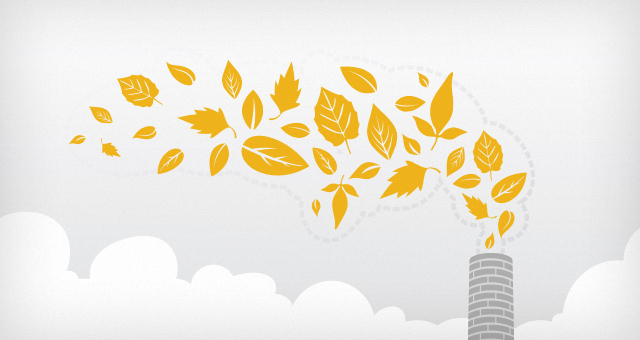
Sustainability—does it matter?
The accepted definition of sustainable development was introduced by the American environmental analyst and writer Lester Brown in 1981, when he wrote that a sustainable society is one which satisfies its needs without diminishing the prospects of future generations.
At the time, many people found it hard to grasp what such a definition might mean in practical terms. Today, things are quite different. Daniel Stigberg, Head of Business Development at Coor in Sweden, thinks this issue has become increasingly important and is frequently making its presence felt in many procurement processes.
“For larger companies it’s now an obvious choice, and often necessary, to work actively with sustainability issues. The drivers vary, and can come from consumers/customers, professional organizations, authorities, the media, staff or Board members. In the FM and industrial services sector the focus is also increasingly shifting towards sustainability issues, which is evident from the tendering documentation, even though if it’s not always the decisive factor.”
However, sustainability is a large field and customer focus varies. In more extensive procurement processes, suppliers frequently need to demonstrate that they’re maintaining a certain standard in a range of areas to even be considered.
At present, sustainability issues tend to focus on quality, environmental issuers and health, safety and the working environment (HSE). Supplier control is another key issue in cases where subcontractors are used, and issues relating to social responsibility also arise from time to time. Daniel Stigberg feels that there’s a difference between the private and public sectors.
“In public sector tendering it’s often required that the supplier holds ISO environmental and quality management certification. The private sector doesn’t always require such certification, but sometimes goes further in terms of asking about how we actually work with these issues.”
The manufacturing sector stands out as an area where environmental issues and HSE are a high priority. In many cases, sustainability is a separate area to be evaluated in the procurement process, and there are cases where this is a major factor for the choice of supplier.
“Generally speaking, the manufacturing industry asks more questions than other sectors. It’s more the rule than the exception that we’re asked to include our HSE plans and policy in this kind of tender,” commented Daniel Stigberg.
As a supplier, it’s important to be able to manage different customer requirements and focuses. For Coor, it’s natural to adapt to the customers’ requirements regarding increased initiatives in certain areas. Daniel explains that Coor follows the principle that if the customer’s requirements are higher than Coor’s, the customer’s will apply, while if the customer’s requirements are lower than Coor’s, Coor’s higher standards apply.
“Of course our standards need to be adapted to our customers’ general demands, and this means that we have to monitor developments in the area carefully.”
Larger service providers are often more able to exercise control over purchasing and suppliers, environmental impact, business ethics and employer’s liability. As a supplier, it’s necessary to keep pace with one’s customers.
“My view is that Coor is well positioned, and this is evident not least from the tendering process. In terms of sustainability, however, it’s necessary to prioritize and select specific issues to work with. Coor has chosen the environmental area, and we’re the only service company to offer a comprehensive environmental audit of all the services we deliver. Many other suppliers offer separate green services, such as for example cleaning, but no other service company takes the overall approach that we do.”
When asked what Coor could do better, Daniel immediately responds:
“We’ve got our ears to the ground and are trying to understand what’s important to our customers. One area that we’re focusing on right now is the working environment, where we have several customers with very high demands. As a responsible supplier we want to be in line with our customers and this means that we’re currently particularly active in this area,” concluded Daniel Stigberg.

